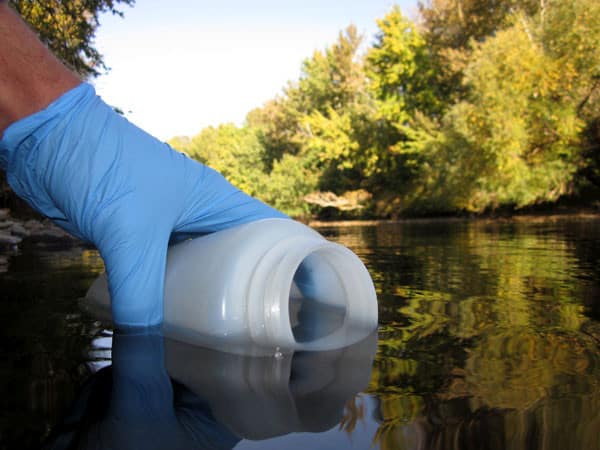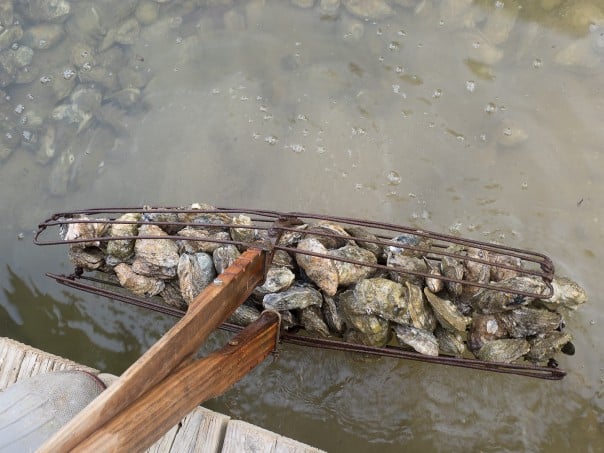Researchers from Penn State University are looking for 50-60 volunteers to serve as “citizen scientists,” in their quest to find out what’s killing off smallmouth bass and hurting other aquatic animals in the Susquehanna River.
Photo: U.S. Geological SurveyThese citizen scientists will be asked to take water samples near where they live and report back to researchers. They’ll also be asked to log the everyday products they use that may contain harmful chemicals.
Penn State researchers are working with the Susquehanna River Basin Commission to zero in on endocrine-disrupting compounds (EDCs) like the chemicals in pesticides, pharmaceuticals and personal care products. Wastewater treatment plants aren’t regulated to filter out these compounds, so they often go right into rivers with treated wastewater.
A 2015 study by the Pennsylvania Department of Environmental Protection linked the presence of EDCs to a decrease in smallmouth bass population in the Susquehanna River, and also found EDCs can lead to “intersex characteristics in aquatic organisms.”
In this one-year citizen scientist project, volunteers will get test kits with instructions, and will be asked to take samples this spring of the surface water at a public location near where they live. They’ll then participate in focus groups through the summer based on their findings.
Volunteers will also be asked to use an online tool to log their current consumption of products containing endocrine-disrupting compounds. The goal of the online tool is two-fold: to make the volunteers aware of just how many harmful chemicals we use regularly, so they can make informed choices, and also to give researchers a snapshot of typical use. You can check out the online calculator by clicking here.
Researchers say with little existing research on these chemicals’ impacts, the information these citizen scientists gather could have a major impact.
“Given the link between the usage of pesticides, pharmaceuticals and personal care products and the presence of endocrine-disrupting compounds in the environment, citizens can play a major role in the scientific discovery process,” says lead researcher Heather Gall, assistant professor of agricultural and biological engineering at Penn State’s College of Agricultural Sciences.
“We are hoping this project gives people a sense of empowerment that they can make a difference in water quality in their local river.”




